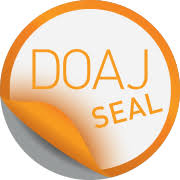Factors of the pvt-collector efficiency formation
DOI:
https://doi.org/10.15276/opu.1.63.2021.06Keywords:
hybrid solar -collector, PVT-collector, temperature regime, heat-transfer agent chargeAbstract
Factors of the PVT-collector efficiency formation. Analytical researches of a hybrid solar collecting channel (PVT) are conducted by manufacture electric and thermal energy. The method of researches allows to analyse the following PVT-collector characteristics : a reheat temperature of an absorber and chilling liquid, as well as productivity depending on external and regime working conditions of the device. The work purpose is to work out of a method of calculation of opeating characteristics and definition of rational operating conditions of work of a hybrid solar collecting channel taking into account effective productivity. The complex mathematical model of the local analysis of processes of heat exchange and electrogeneration of a hybrid solar collecting channel for real conditions of a dynamic solar and climatic situation is used. The carried out analysis of heat exchange in alternative conditions showed that efficiency of a heat transport in a collecting channel integral cooling system ηT (a relationship of temperature of an absorber and final temperature of heat-transfer agent) is not a constant and considerably changes under the external and internal factors. It is influenced by intensity of insolation and the heat-transfer agent charge. With growth of these parametres ηT decreases. Existing dependence of electric power of a photo cell on the charge of a chilling liquid is characterised by presence of two expressed sections which are discriminated by rate of a variation of a function. The first of them, with low flux level of a liquid, differs considerable agency of functional parametres. The second one at high intensity differs asymptotic stabilisation of power. The limit values of the transition of the rate of decrease of the function correspond to the fluid flow rate of 0.08…0.085 l/(m2s). These values can be accepted for rationalisation of a refrigerating duty of the photobattery. Generalized dependences for determining the temperature of the liquid at the outlet of the device and the average temperature of the absorber are obtained. These dependences can be used to evaluate the efficiency of conversion of solar energy into electrical and thermal energy in regime optimization problems.
Downloads
References
Barbu M., Darie G., Siroux M. A Parametric study of a hybrid photovoltaic thermal (PVT) system coupled with a domestic hot water storage tank. Energies. 2020. 13. 6481. P. 38–56.
Гибридные солнечные коллекторы PVT. 2013. URL: http://solarsoul.com.ua/gibridnye-solnechnyekollektory.
Севела П., Олесен Б. Гибридный солнечный коллектор. Здания высоких технологий. 2013. № 2.С. 90–97.
Харченко В.В., Никитин Б.А., Тихонов П.В., Макаров А.Э. Теплоснабжение с ипользованием фотоэлектрических модулей. Техника в сельском хозяйстве. 2013. № 5. С. 11–12.
Височин В.В., Нікульшин В.Р., Денисова А.Е. Особливості режимів охолодження гібридних сонячних колекторів. Енергозбереження та промислова безпека: виклики та перспективи. Наук.- техн. зб.: матеріали ІІІ міжнар. наук.-пр. конф. Київ : Основа, 2020. С. 125–130.
Akhatov J.S. Yuldoshev I.A., Halimov A.S. Study of thermal-technical parameters and experimental investigations on PV-Thermal collector. International Journal of Engineering and Advanced Research Technology (IJEART). 2015. Volume 1. Issue 1. P. 71–75.
Харченко В.В., Никитин Б.А., Беленов А.Т., Тихонов П.В. Повышение эффективности энергетических установок на базе тепловых фотоэлектрических модулей. Наук. вісник НУБІП України. Серія: Техніка та енергетика АПК. 2014. № 194. Ч.3. С. 45–51.
Сабирзянов Т.Г., Кубкин М.В., Солдатенко В.П. Математическая модель фотобатареи как источника электрической энергии. Техніка в сільскогосподарському виробництві. 2012. Вип.25. Ч.1. С. 331–335.
Нікульшин В.Р., Височин В.В. Нетрадиційні джерела енергії: навч. посіб. Одеса : КПЦ «Білка», 2016. 208 с.





